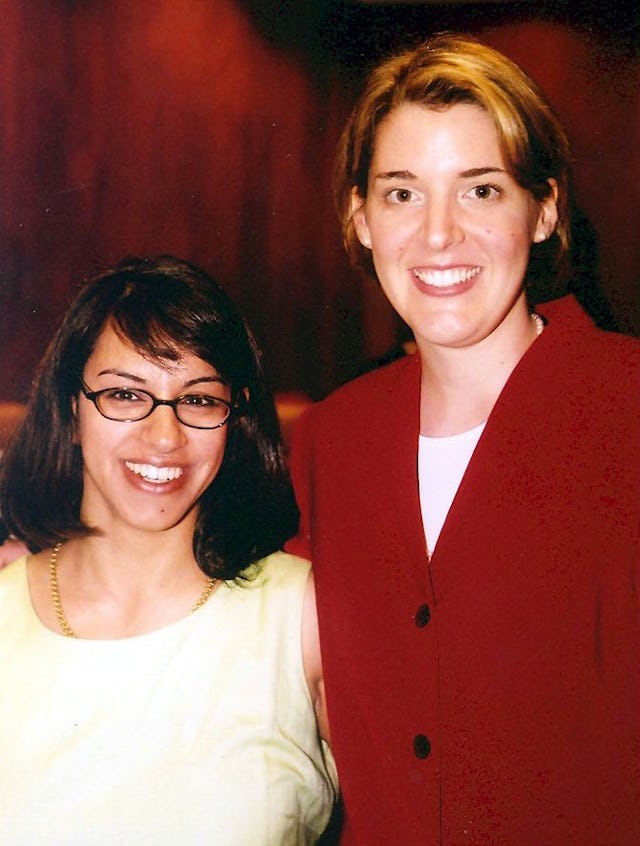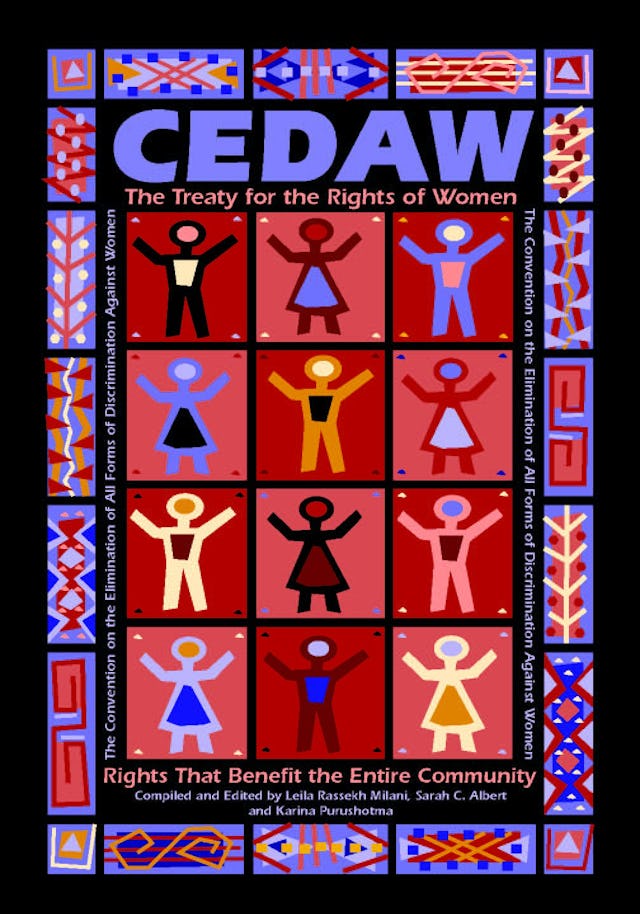Baha'is co-author women's rights publication
WASHINGTON — A newly published handbook demonstrates the leading role played by the Baha'i community of the United States in advocating the ratification by the U.S. government of an important international treaty on women's rights.
The handbook, which outlines the importance of the Convention on the Elimination of Discrimination Against Women, was co-authored by Leila Rassekh Milani, a spokesperson for women's issues for the National Spiritual Assembly of the Baha'is of the United States.
A coalition of some 190 U.S. nongovernmental organizations recently introduced the book at the U.S. Senate.
For more than a decade, a representative of the U.S. National Spiritual Assembly has co-chaired the coalition, which is known as the Working Group on Ratification of CEDAW (Convention on the Elimination of Discrimination Against Women).
The convention is an international "Bill of Rights" for women. It addresses the political, cultural, economic, and social dimensions of human rights for women around the world.
The United States was active in drafting the convention and was one of the first nations to sign it. However, the United States is the only industrialized nation that has failed to ratify the treaty, lacking the necessary votes in the Senate.
The handbook, "CEDAW: Rights that Benefit the Entire Community," was introduced in a Senate hearing room under the sponsorship of Senator Joseph Biden, a member of the Senate Foreign Relations Committee. More than 100 people attended, including representatives of the United Nations, NGOs, and congressional staff.
"The treaty on women's rights is a key instrument in promoting the equality of women," said Sean Moore, a spokesman for Senator Barbara Boxer, one of the key supporters of the convention in the Senate. "This handbook is an important educational tool to gain the 67 votes needed for Senate ratification."
Working with Ms. Milani on the book were Sarah Albert of the General Federation of Women's Clubs and Karina Purushotma of the U.S. National Spiritual Assembly's office in Washington.
The book is a revised and expanded edition of "Human Rights for All," an advocacy book compiled and edited by Ms. Milani in 2001.
"After September 11, the world changed," said Ms. Milani. "Greater attention was given to Afghanistan and the aggressive, systematic oppression of women there. Links were found between terrorism and the status of women, national security and women, HIV/AIDS and women."
Accordingly, the second edition of the book focuses on the international impact of the treaty and documents how the treaty has been used by activists, lawyers, government agencies, and nongovernmental organizations to address trafficking in women, HIV/AIDS, terrorism, national security, and other key issues of global concern.
Carolyn Hannan, director of the U.N. Division for the Advancement of Women, said U.S. ratification of the convention would strengthen the treaty around the world.
She also thanked the Working Group for producing the advocacy book, saying, "We will use it extensively in our work and with all our contacts at the United Nations."
An electronic version of the book is available for download at http://www.womenstreaty.org.
Since 1988, the Baha'is of the United States have been at the forefront of efforts to encourage U.S. ratification of international human rights treaties, including the U.N. Genocide Convention, the Convention Against Torture, the Convention on Civil and Political Rights, and the Convention Against Racial Discrimination.

